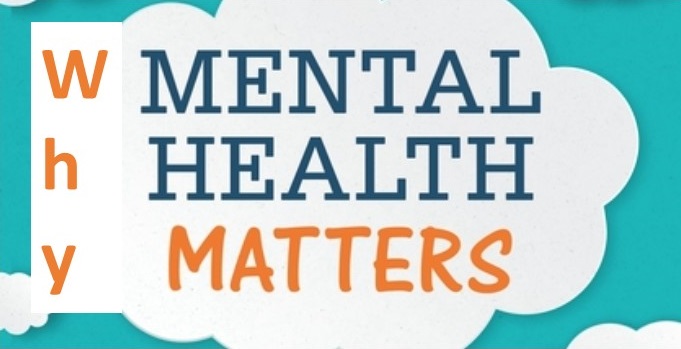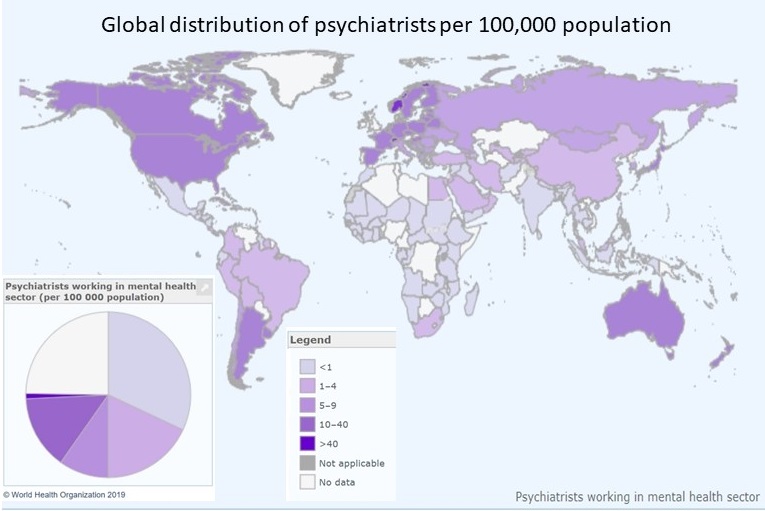
To lead a healthy lifestyle, you need to pay equal attention to your physical fitness and mental wellbeing. Focusing on one aspect and neglecting the other can lead to drastic outcomes, so you need to pay attention to your mental health.
In this article, we help you understand: why mental health is important to leading a wholesome lifestyle and discuss some risk factors that trigger mental health issues. We will also discuss the causes of mental illness and a few early-stage signs of mental illness that you need to know about.
No age or gender is immune from mental illness. It can begin at any age, from childhood through later adult years, but most cases begin earlier in life. Men and women are not equally affected by the different types of mental illnesses. For example, worldwide, anxiety disorders and depression are more common in women than in men, while psychotic disorders are more common in men than in women.
The effects of mental illness can be temporary or long lasting. You can have an acute episode of mental illness or a long standing illness. Also, you can have more than one type of mental health disorder at the same time. For example, you may have depression and a substance use disorder.
Mental health is paramount for living a wholesome lifestyle
Mental Health is a combination of our cognitive, behavioral and emotional wellbeing. It impacts our decision-making skills and the way we handle stress and cope with other hardships of life.
As per the statistics listed in The Lancet Global Health report on Mental Health in Africa, the average rate of outpatient visits for mental health care in Africa is just 14 per 100,000 population. This is extremely low when compared to the global annual outpatient visit rate of 1051 per 100,000 population.1
So, to keep yourself mentally fit and achieve a wholesome lifestyle, you must maintain a mental health balance. Negligence in keeping your mental wellbeing intact can have a significant impact on your overall health.
Risk factors contributing to mental illness
Before we discuss common causes of mental illness and few of the early warning signs that should raise mental health concerns, you should understand some of the risk factors that may be associated with mental illness in an individual.
Causes of mental illness
The causes of mental illnesses generally fall into three broad categories; genetic, environmental and brain chemistry.
Concerning early signs and symptoms to look out for
Mental illness signs and symptoms are generally reflections of dysfunction in affect, memory, thoughts and behaviors.
Every health issue has its signs and symptoms and knowing about the early warning signs and symptoms of mental illness helps you seek medical attention early either for yourself or a loved one. Note that the signs and symptoms discussed below may vary depending on the specific disorder, Consequently, not all examples discussed will be present at once in any case of mental illness.
Examples of signs and symptoms of mental illness include:
Expression of feelings of sadness and lack of interest is an early warning symptom and sign of mental illness.
You would start experiencing random mood swings, a sudden outburst of emotions without a valid reason and other behavioral changes in your emotional state.
Over dwelling on fears, worries and expression of guilt is an important hallmark of mental illness.
You may express feelings of tiredness and low energy and not engage in any activities.
You would keep away from all social interactions possible; be it in the form of parties, or meeting with friends. You will also start losing interest in all daily activities and would prefer keeping to yourself.
People who suffer from mental illness demonstrate oftentimes abrupt change in their eating and sleeping habits. Their sleeping pattern may become irregular, excessive or not enough. They may also lose their appetite or start binge-eating.
Having the right mental status is essential to allow your brain to process everything correctly. However, if you suffer from mental problems, you may notice a considerable downfall in your logical thinking and concentration power, severity of which can also lead to other psychological after effects.
This is an important sign to look out for. People with mental illness may often talk of harming themselves or others and may indeed have or make plans for carrying such acts out.
Excessive suspicion (paranoia), expression of hearing unreal voices or seeing unreal objects (hallucinations) and detachment from reality are observed in some mental illnesses.
You may feel overwhelmed with minor stress and demonstrate little interest in addressing problems that come up in everyday life.
Changes in sex drive, especially lack of interest in sex is common in some mental illnesses like depression. Excessive sex drive may also be seen in some other types of mental illnesses.
Not infrequently, mental illness may present with early anger management issues with demonstration of hostility, or sometimes anger.
You may exhibit a lack of energy, slowness and low motor activity. On the other hand you may exhibit purposeless high energy and excessive motor activity.
Some people with mental illness may frequently complain and/or dwell on physical complaints like stomach or back pains, headaches, multiple body aches and pains and other unexplained medical symptoms.
When to seek medical attention
In view of considerable societal stigma associated with mental illness worldwide, including in Africa, most people with mental illness do not seek medical help early.
Additional compounding factors preventing early seeking of medical help for mental illness in Africa are:

In light of the above, it is not uncommon for mental health patients in Africa to seek care from traditional healers or religious institutions. Care received in these situations are often primitive, sometimes inhumane, and most often counterproductive.
There is absolutely no substitute to seeing a well-trained doctor or psychiatrist in the treatment of mental illness.
If you have any of the signs or symptoms of a mental illness described above or see them in any loved one, see your doctor or a psychiatrist as soon as possible. Note that mental illnesses like other physical illnesses do not improve on their own. Indeed left untreated, a mental illness may get worse over time and cause other serious problems including the risk of death.
Conclusion
Mental illness is not uncommon. It is very important to be knowledgeable in early identification of the common early signs and symptoms of the disorder, since early access to orthodox treatment produces the best desirable outcome.
References:
Related:
Published: November 23, 2019
© 2019. Datelinehealth Africa Inc. All rights reserved.
DATELINEHEALTH AFRICA INC., is a digital publisher for informational and educational purposes and does not offer personal medical care and advice. If you have a medical problem needing routine or emergency attention, call your doctor or local emergency services immediately, or visit the nearest emergency room or the nearest hospital. You should consult your professional healthcare provider before starting any nutrition, diet, exercise, fitness, medical or wellness program mentioned or referenced in the DatelinehealthAfrica website. Click here for more disclaimer notice.